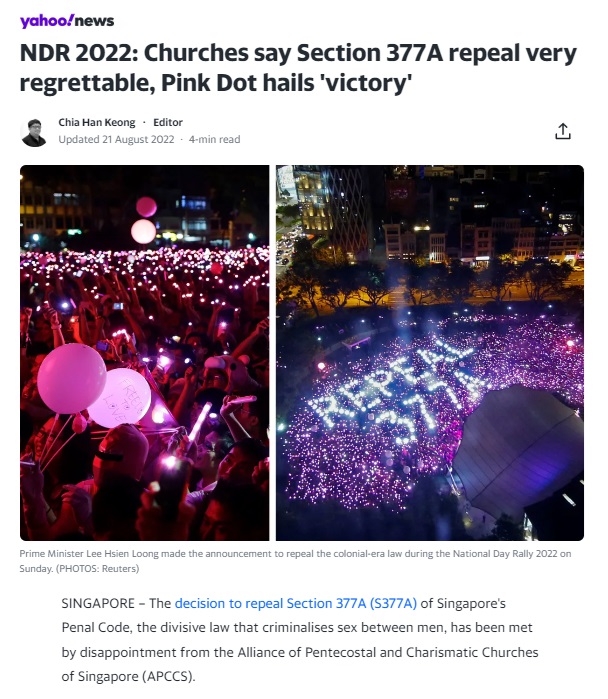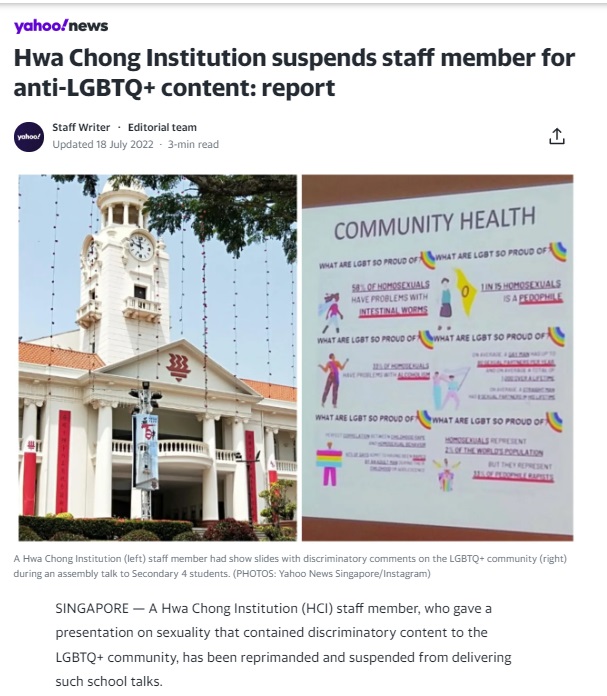Death Cafe (Sep 2022): On funeral rituals and other reflections
Finding purpose in life; views from the non-religious at Humanist Cafe
Yahoo: NDR 2022: Churches say Section 377A repeal very regrettable, Pink Dot hails ‘victory’

The Humanist Society was quoted in this Yahoo article – NDR 2022: Churches say Section 377A repeal very regrettable, Pink Dot hails ‘victory’
The Humanist Society, which seeks to represent non-religious people in Singapore, said it “celebrates” the announcement to repeal S377A.
“S377A, a vestige of British colonial rule, criminalised sex between consenting male adults. It dehumanised individuals, infringed upon the most personal of liberties, and imposed a religious code on a secular public,” it said in a statement.
“We note that while some individuals or organisations may have disagreed with the repeal, we hope that they will eventually come around to see that building a fairer, more inclusive, secular society benefits everyone, regardless of race, language, religion, or sexual orientation.”
“With this repeal, we can look forward to a more progressive Singapore society, based on justice and equality.”
Yahoo News: Hwa Chong Institution suspends staff member for anti-LGBTQ+ content: report

The Humanist Society (Singapore) was quoted in Yahoo News: Hwa Chong Institution suspends staff member for anti-LGBTQ+ content: report
There was an incident at Hwa Chong Institution (HCI) in which a school counsellor giving a sex education talk used content that discriminated against lesbian, gay, bisexual and transgender (LGBT+) people. In his presentation on 13 Jul 2022 to the Secondary 4 cohort, he had made unsubstantiated claims such as how a majority of homosexuals have problems with intestinal worms and how a large proportion of them are paedophiles. The slides from the presentation were later widely shared on social media.
The Humanist Society released a statement and it was reported on this article:
| The Humanist Society (Singapore) also put up a media statement on its website saying that the video was produced by truelove.is, an evangelical organisation serving the Christian community in Singapore. “It is inappropriate that such a video is shown in a national school such as HCI to an audience coming from all backgrounds, including those who are not religious,” the society – which seeks to represent non-religious people in Singapore – wrote in its statement. “Unlike adults, students in a school setting do not always have the choice to opt out of such sessions. Besides, HCI is a secular institution and not a religious establishment. “We urge the Ministry of Education, and all public schools under MOE, to ensure that sexuality education in school, including those conducted by external vendors, has content that is suitable for all races and religions, including the non-religious.” The society added that Christian organisations and individuals have the religious freedom to conduct Christian and Christianity-inspired sexuality education within the Christian community. “There is no need for Christians to carry out evangelism in national schools, whether openly or covertly,” it wrote. |




